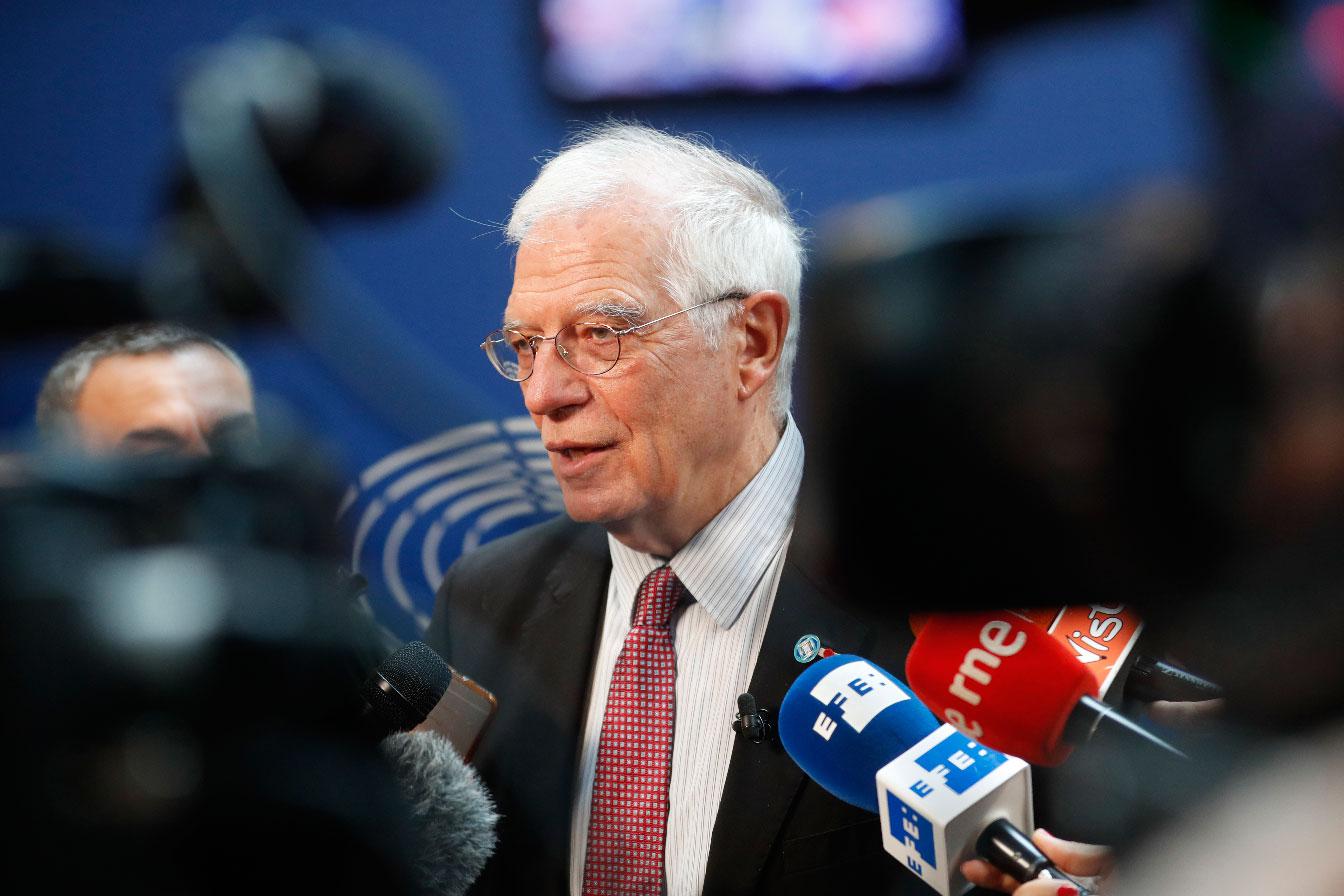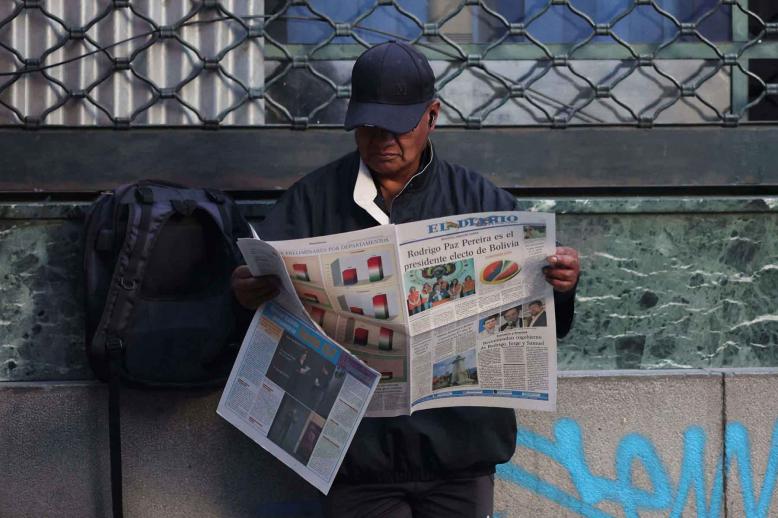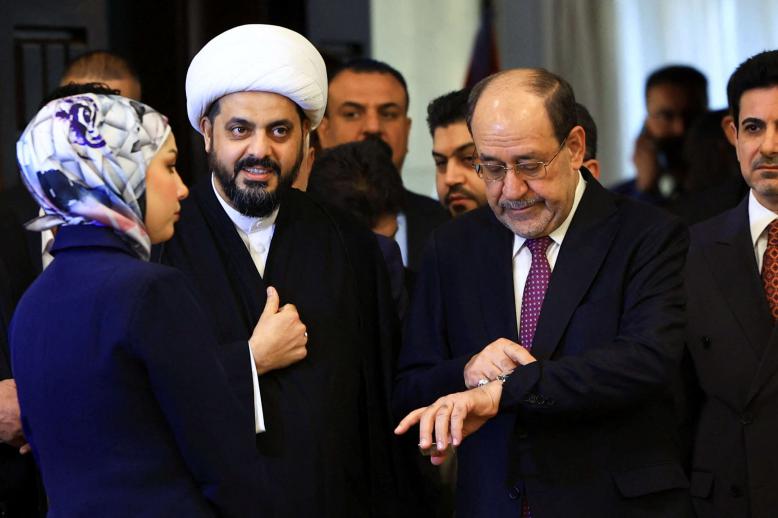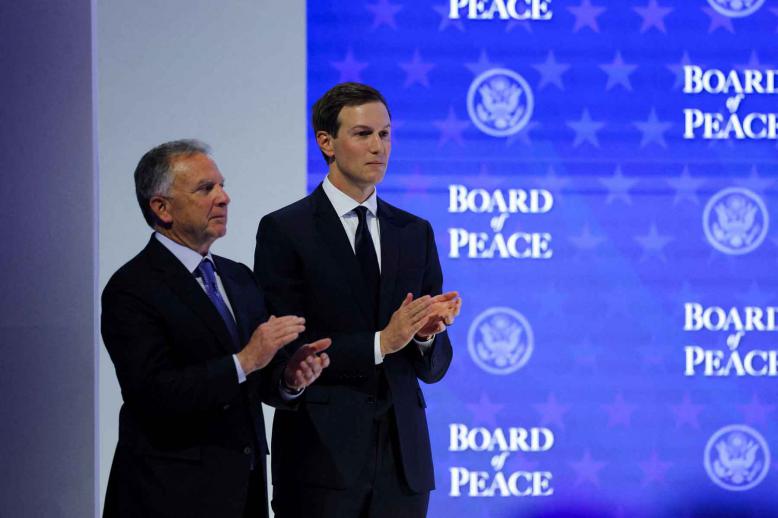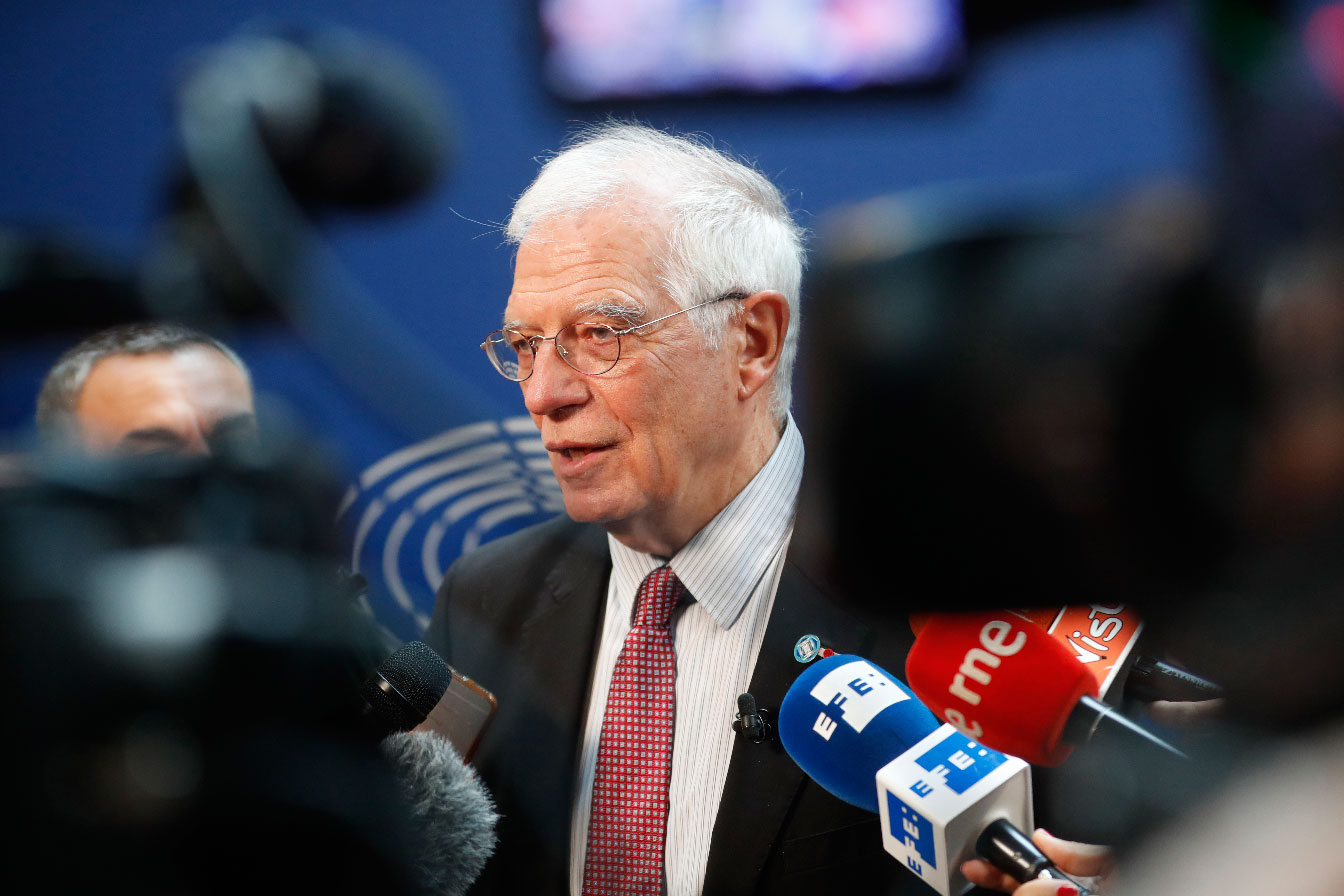Europeans trigger Iran deal's dispute resolution mechanism
PARIS - Britain, France and Germany have formally triggered the dispute resolution mechanism in the 2015 nuclear deal with Iran, the biggest step the Europeans have taken in response to Tehran backing off its nuclear commitments amid simmering tensions with the United States.
In one of the strongest calls yet from Europe for a new agreement to replace the agreement that Washington abandoned two years ago, British Prime Minister Boris Johnson said the way forward was to agree a new "Trump deal".
European countries have so far resisted that move, looking to salvage the pact currently in place - but both Iran and the US have taken a different path as US President Donald Trump pursues a "maximum pressure" policy intended to browbeat the Islamic Republic, rejecting the foreign policy of his predecessor Barack Obama.
The European powers said they had taken the step to trigger the dispute mechanism in order to avoid a crisis over nuclear proliferation being added to the escalating confrontation between the US and Iran in the Middle East.
In a statement, they said they still want the deal to succeed and were not joining the "maximum pressure" campaign against Iran.
Triggering the dispute mechanism amounts to formally accusing Iran of violating the terms of the agreement and could lead eventually to the reimposition of UN sanctions that were lifted under the deal.
Washington's European allies have tried to keep the nuclear agreement from collapsing since Trump pulled the US out of it in 2018. Under the agreement, international sanctions against Iran were lifted in return for Tehran agreeing to curbs on its nuclear programme.
But Washington has reimposed its own sanctions, denying Iran most of the economic benefits promised by the pact. Trump has argued that the agreement reached with Iran under Obama was too weak and new sanctions were needed to force Iran to accept more stringent terms.
'Show our credibility'
Iran has responded by gradually exceeding many of the limitations it had signed up to in the deal. On Jan. 6 it said it would abandon limits on its production of enriched uranium (which can be used to fuel a nuclear weapon), a step the Europeans said was likely to force them to respond.
"We do not accept the argument that Iran is entitled to reduce compliance with the JCPoA," the three European countries said in a joint statement on Tuesday, using the formal name of the agreement, the Joint Comprehensive Plan of Action.
In triggering the dispute mechanism, "our three countries are not joining a campaign to implement maximum pressure against Iran. Our hope is to bring Iran back into full compliance with its commitments under the JCPoA."
To trigger the dispute mechanism, the three European countries notified the European Union, which acts as guarantor of the agreement. The EU's foreign policy chief, Joseph Borrell, said the bloc's aim was not to reimpose sanctions, but to "resolve issues relating to the implementation" of the deal.
Under the mechanism outlined in the deal, the EU would then inform the other parties - Russia and China as well as Iran itself. There would then be 15 days to resolve the differences, a deadline which can be extended by consensus.
The process can ultimately lead to a "snapback" - the reimposition of international sanctions in place under previous UN resolutions.
"At one point we have to show our credibility," a European diplomat told Reuters news agency on Tuesday.
The European countries said in their statement they were acting "in good faith with the overarching objective of preserving the JCPoA and in the sincere hope of finding a way forward to resolve the impasse through constructive diplomatic dialogue, while preserving the agreement and remaining within its framework."
"Given recent events, it is all the more important that we do not add a nuclear proliferation crisis to the current escalation threatening the whole region," they said.
The EU's Borrell, who will oversee the dispute mechanism, insisted that the aim of the current process was to save the 2015 deal, not sink it. The former Spanish foreign minister stressed that there was "no alternative" to the existing accord, which took a decade of hard-fought negotiations to agree.
"Let me say this clearly: the dispute resolution mechanism that is being triggered now is not about reimposing sanctions," Borrell told reporters at the European Parliament in Strasbourg.
'Iran never lost a negotiation'
Washington's exit from the nuclear pact, and the severe economic distress caused by the US sanctions that followed, have fed one of the biggest escalations in hostility between the US and Iran since Iran's 1979 Islamic Revolution.
That has accelerated sharply since Jan. 3, when the US killed the most powerful Iranian military commander, Qassem Soleimani, in a drone strike in Baghdad. This was in response to the storming of the US embassy in Baghdad by members of Iran-backed Shiite paramilitaries.
Those Iran-backed groups were incensed after a US strike that killed over 20 fighters loyal to the Iran-backed milita Kataeb Hezbollah, which was seen as a response to the killing of an American civilian contractor working in Iraq.
Kataeb Hezbollah was founded by Iraqi security official Abu Mahdi al-Muhandis, who was also killed in the strike on Soleimani.
On Jan. 8, Iran accidentally shot down a Ukrainian airliner carrying 176 passengers, including 82 Iranian citizens, while its forces were on high alert following retaliatory missile strikes on military bases in Iraq housing US troops.
After days of denials, the Iranian authorities acknowledged responsibility for the crash, and have since faced days of anti-government demonstrations at home.
Videos spread on social media suggest Iranian security forces are taking a hard line, with some showing protesters bleeding on the ground after allegedly being shot. Other videos have shown protesters chanting slogans against the Islamic Republic's Supreme Leader, Ayatollah Ali Khamenei - including "down, dictator" - and tearing town posters of Soleimani, who the Iranian regime portrays as a national hero.
Trump says his aim in quitting the nuclear deal is to force Iran to sign up to a more stringent pact, posting on Twitter after the US strike killed Soleimani that "Iran never won a war, but never lost a negotiation!"
That comment was interpreted as a call for Iran to renegotiate the nuclear deal as it faced military confrontation with the US. It was also a dig at former president Obama who Trump has accused of enabling Iran's regional adventurism. He said the missiles fired by Iran at Iraqi bases were "paid for" by the Obama administration.
Tehran says it will not renegotiate the nuclear deal as long as US sanctions are in place, claiming Washington is proving its bad faith by not keeping to the commitments made under Obama.
'Dial this thing down'
Britain's Johnson, a conservative who has pitched himself as an ally of Trump who can help bridge the diplomatic gap between the US and Europe, said he wanted to avoid a military conflict with Iran.
"Let's dial this thing down," he said in an interview with the BBC.
On the deal, he said: "If we're going to get rid of it, let's replace it and let's replace it with the Trump deal... President Trump is a great dealmaker, by his own account. Let's work together to replace the JCPOA and get the Trump deal instead."
Answering an emergency question in the House of Commons, British Foreign Secretary Dominic Raab denied Johnson's remarks represented a policy shift, as critics jumped on the apparent discrepancy.
Raab told MPs that the whole government - including the prime minister - still believed the 2015 agreement was the best solution, saying: "We want Iran to come back into full compliance."
But he noted that Britain, the US and European powers had discussed at the G7 summit in Biarritz last year the possibility of a "broader deal" that had Washington's support.
"It's not just President Trump but also President Macron (of France) who have argued for a broader deal with Iran," he said.
He said this would address some of the defects in the JCPOA, "which is not a perfect deal", and wider concerns "about Iran's broader destabilising activities in the region".
"The US and our European partners want us to be ambitious in our diplomatic approach with Iran and that is something I fully subscribe to," Raab said.


